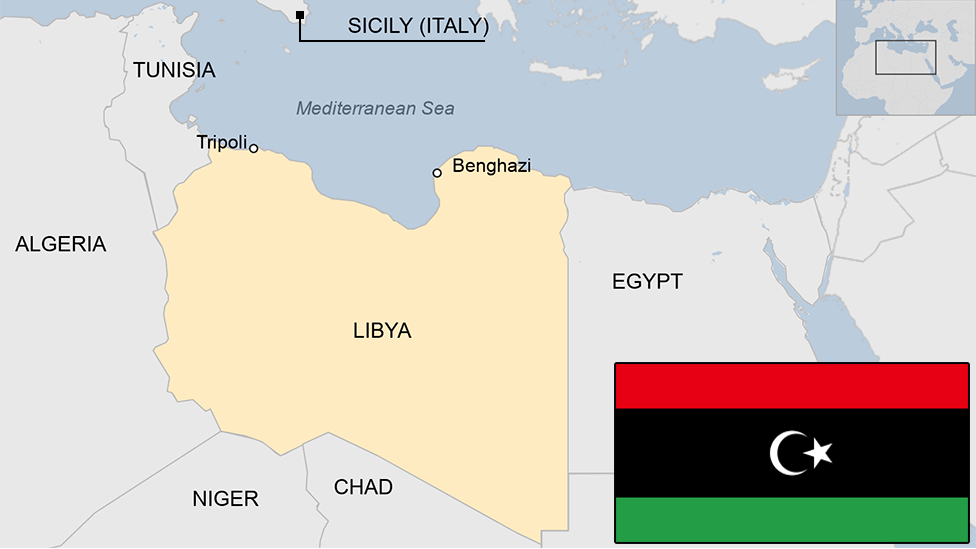Libya crisis: Air strike at Tripoli airport as thousands flee clashes
- Published
No casualties were reported in the air strike
The UN has condemned an air strike that closed the only functioning airport in Libya's capital, Tripoli, on Monday.
Flights at Mitiga International Airport were suspended and passengers were evacuated. No casualties were reported.
The UN blamed the air strike on forces loyal to General Khalifa Haftar, a commander from the east who is trying to seize the capital.
A spokesman for Gen Haftar's forces said civilian planes had not been targeted, Reuters news agency reports.
Gen Haftar, who leads the Libyan National Army (LNA), declared an offensive to take control of Tripoli from Libya's UN-backed government last week.
Prime Minister Fayez al-Serraj has accused him of attempting to carry out a coup.
At least 2,800 people have so far fled fighting around Tripoli, the UN says.
The UN also warns that those who remain risk being cut off from vital services because of the clashes.
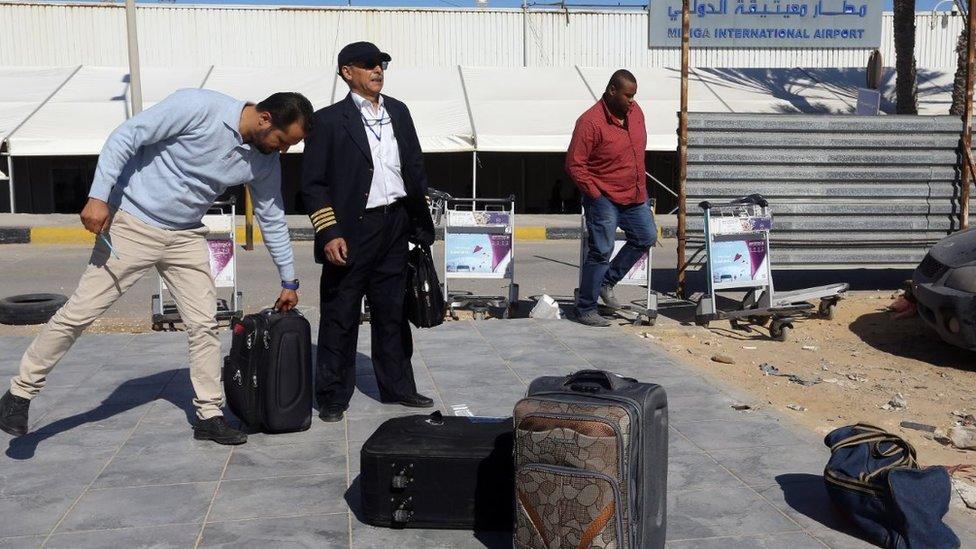
A crew member and passenger seen outside the international airport
Libya has been torn by violence, political instability and power struggles since long-time ruler Muammar Gaddafi was deposed and killed in 2011.
International powers have started evacuating personnel from the country in recent days as the situation has deteriorated.
What is the latest on the clashes?
The UN's Libya envoy, Ghassan Salame, said Monday's air strike violated humanitarian law which prohibited attacks against civilian infrastructure.
Mr Salame said the bombing marked an "escalation of violence on the ground".
LNA spokesman Ahmed Mismari was quoted by Reuters as saying "only a MiG [aircraft] parked at Mitiga airport" had been targeted.
The airport is also the base for a powerful militia, loosely under the control of the government's ministry of interior, says the BBC's North Africa correspondent, Rana Jawad.
An older, inactive airport, Tripoli International, has also been a focal point for clashes recent days.
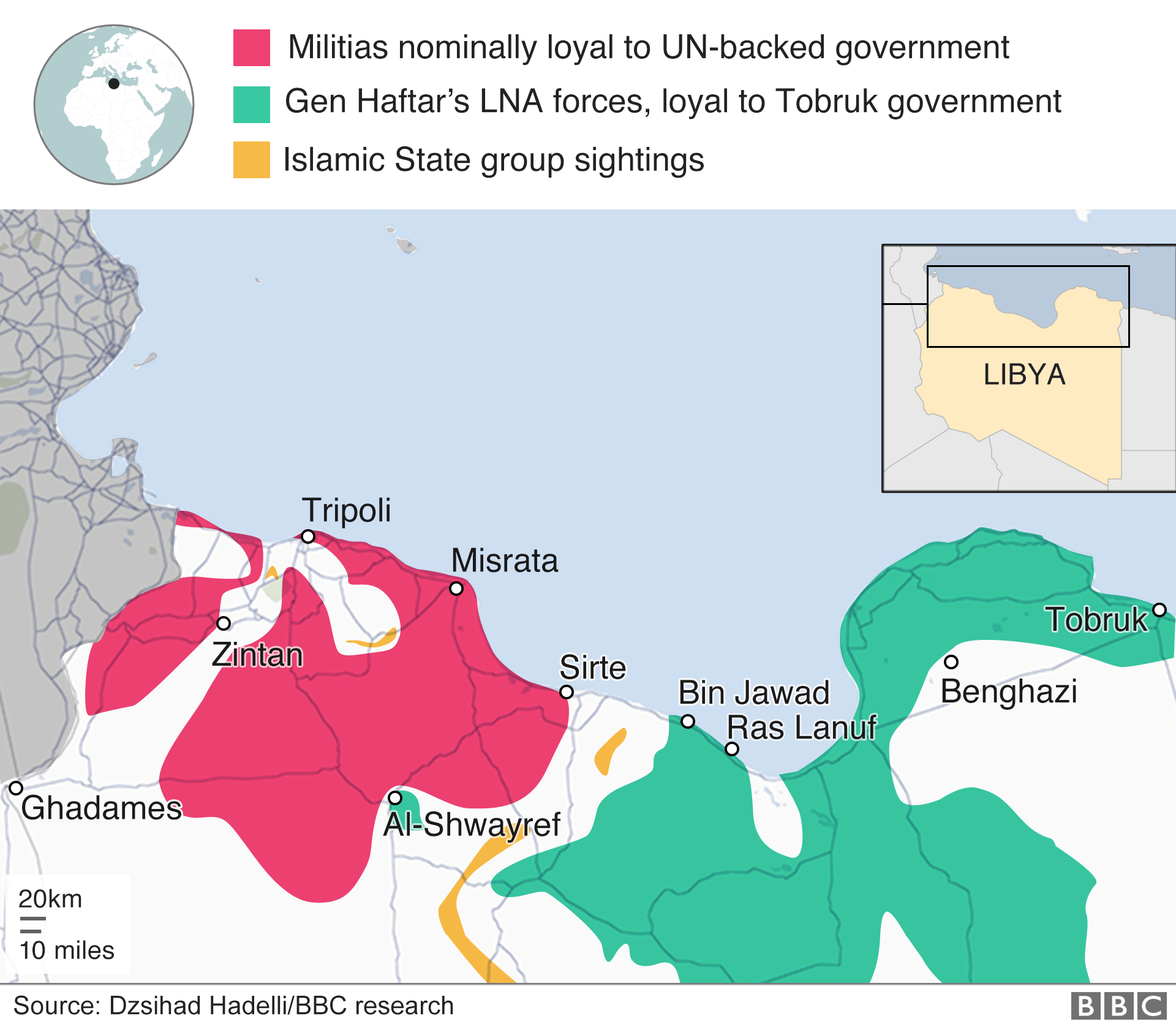

The Libyan health ministry said at least 25 people had been killed and 80 wounded so far, including civilians and government fighters.
Gen Haftar's forces said they had lost at least 19 fighters.
The UN appealed for a two-hour truce on Sunday to allow for the evacuations of casualties and civilians, but fighting continued.
Why is there fighting in Libya?
Libya has been a hotbed of unrest since Gaddafi was overthrown eight years ago.
The Government of National Accord (GNA) was created from peace talks in 2015, but has struggled to take control despite UN backing.
Gen Haftar is allied to a rival government in the eastern city of Tobruk which has refused to cede power to Tripoli.
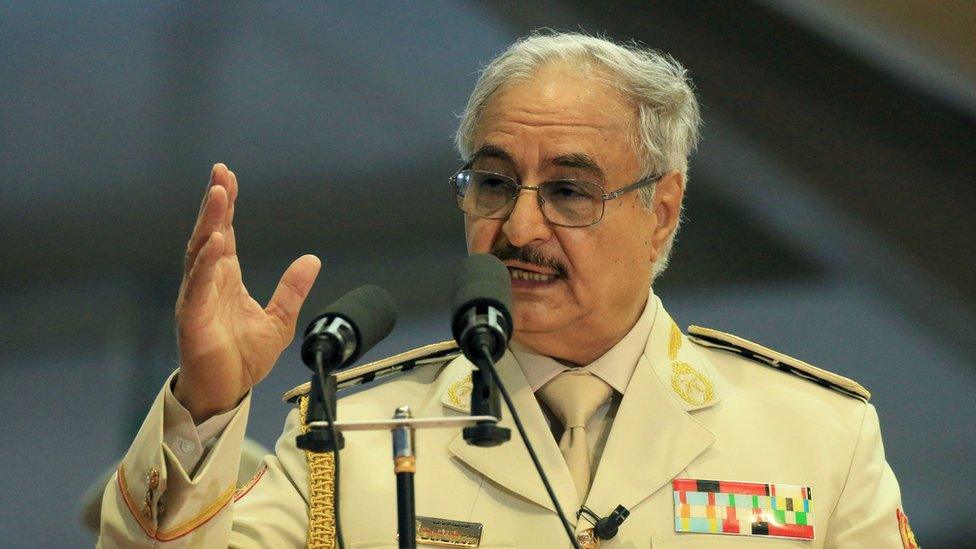
Gen Haftar has ordered his forces to advance on Tripoli
The general helped Gaddafi seize power in 1969 before falling out with him and going into exile in the US.
He then returned when the uprising against Gaddafi began and became a rebel commander.
His LNA troops have continued to make advances, seizing the south of Libya and its oil fields earlier this year.
UN-backed talks between the rival governments had been scheduled for 14-16 April to discuss a roadmap for new elections, but it is now unclear if these will still take place.
Prime Minister Fayez al-Serraj said he had offered concessions to Gen Haftar to avoid bloodshed, only to be "stabbed in the back".
What has the reaction been?
Much of the international community, including the US, have called for a ceasefire to hostilities.
"This unilateral military campaign against Tripoli is endangering civilians and undermining prospects for a better future for all Libyans," US Secretary of State Mike Pompeo said on Sunday.
The US military is among those to withdraw its supporting forces based in the country, external, blaming the "complex and unpredictable" situation and "increased unrest" on the ground.
The UN is also due to pull out non-essential staff.
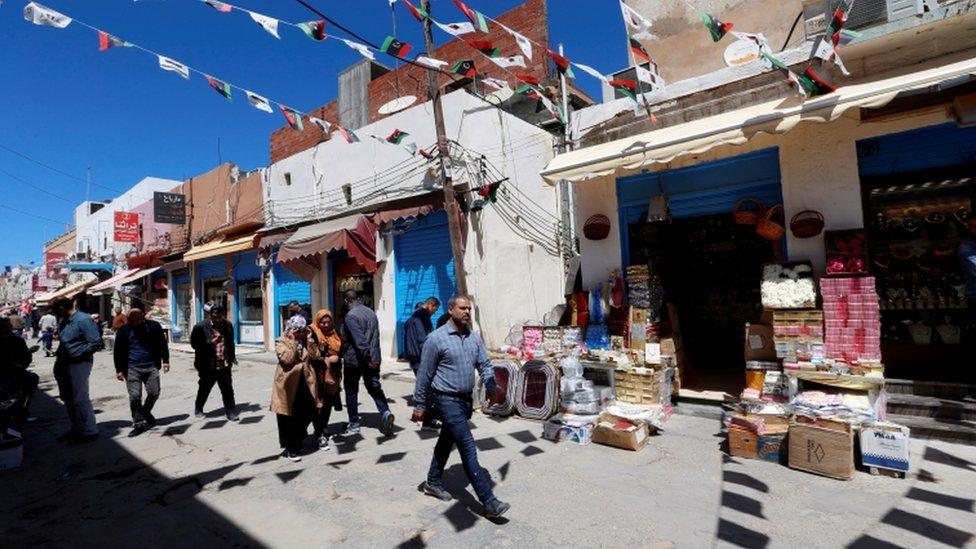
A market in Tripoli. Residents are said to be stocking up on supplies
Residents of Tripoli have reportedly begun stocking up on food and fuel.
The BBC Arab affairs editor Sebastian Usher says some residents fear a long operation such as that which Gen Haftar mounted to take the eastern city of Benghazi from Islamist fighters in 2017.

Back to square one?
Analysis by Rana Jawad, BBC North Africa correspondent, in Tunis
The rogue general's defiance suggests that, despite international condemnation of his recent moves, he believes he can only secure a place in Libya's future political makeup through military means.
Diplomats are worried because the manner and timing of the attack mean he is unlikely to back down unless he is defeated.
Few thought he would go ahead and launch this operation - which he has long threatened to do - because they believed ongoing talks that saw him go from Paris to Palermo and the UAE for more than a year would buy time until a new political settlement was reached through negotiations and an eventual electoral process.
Today, Western nations have few cards to play to de-escalate the violence and once again find themselves in a position where they may need to start from scratch.
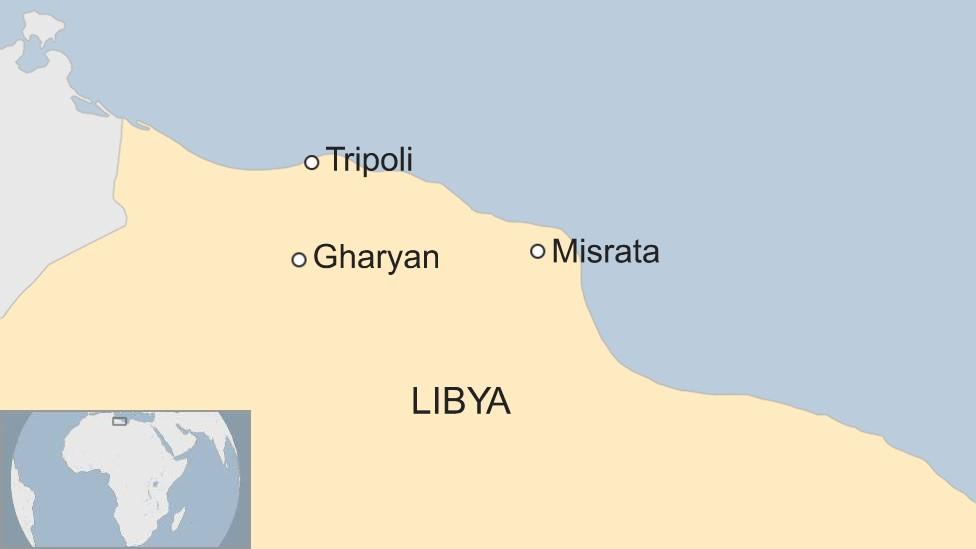
- Published13 September 2023
